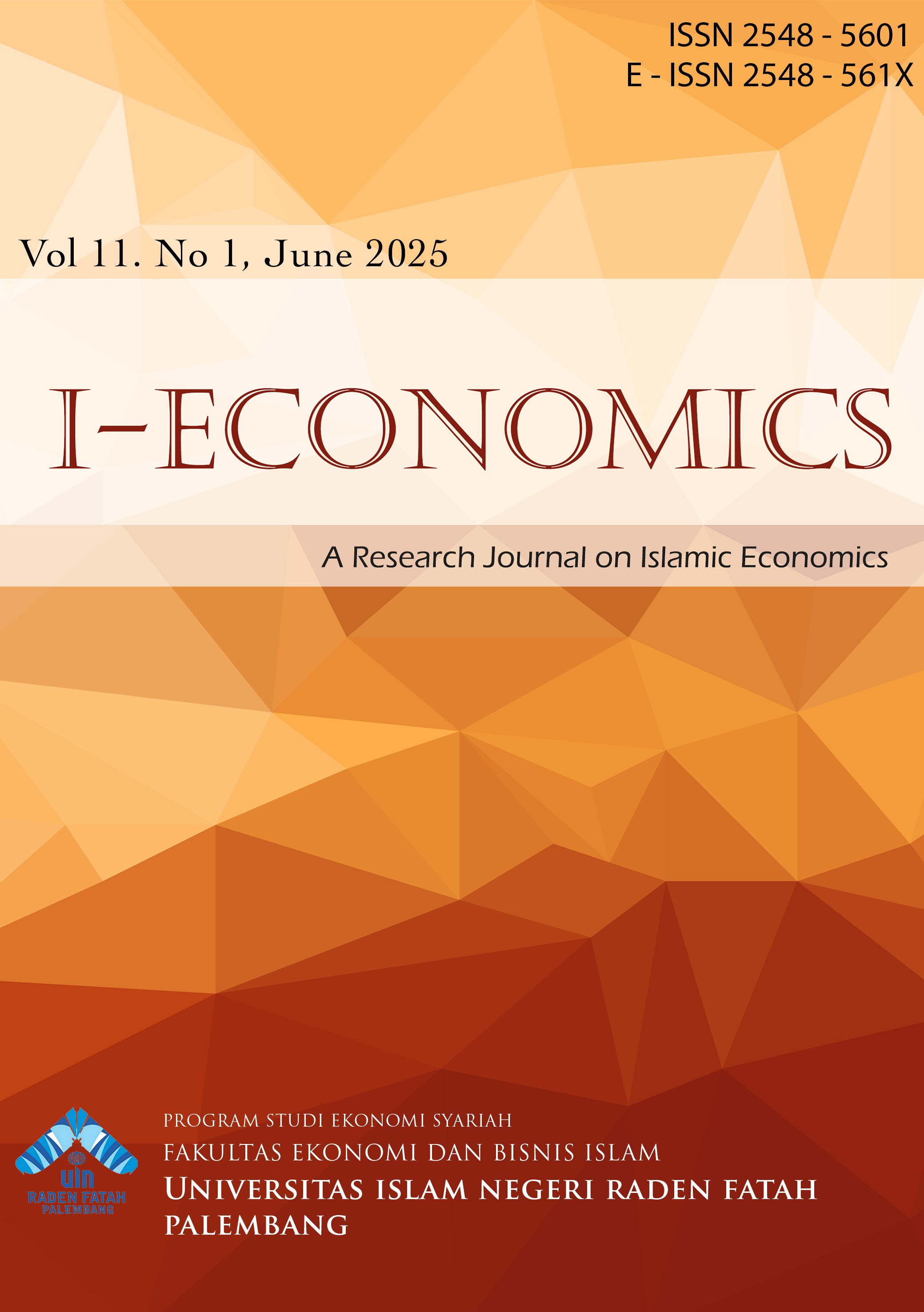BMT AS AN AGENT OF ECONOMIC TRANSFORMATION: A RANDOM EFFECTS ANALYSIS IN FORMER RED-LIGHT AREAS OF SURABAYA
Main Article Content
Abstract
This study aims to analyze the impact of the prostitution localization shutdown on the development of micro and small enterprises (MSEs) in Surabaya, focusing on policy interventions and the interaction with community-based microfinance institutions (BMTs). A quantitative method is employed using a random effect panel data regression on 154 urban villages from 2011 to 2021. The results reveal that the shutdown significantly reduced the number of MSEs, particularly in the food-beverage and textile sectors. However, the negative impact is substantially reversed when combined with BMT support. Social factors such as social capital and infrastructure access are also found to influence MSE dynamics. These findings highlight that localization shutdown policies should be followed by inclusive, community-based economic recovery strategies to mitigate the socioeconomic disruptions triggered by such closures.
Downloads
Article Details

This work is licensed under a Creative Commons Attribution-ShareAlike 4.0 International License.

I-ECONOMICS: A Research Journal on Islamic Economics by http://jurnal.radenfatah.ac.id/index.php/ieconomics is licensed under a Creative Commons Attribution-ShareAlike 4.0 International License.
How to Cite
References
Adamczyk, A., & Hayes, B. E. (2012). Religion and Sexual Behaviors: Understanding the Influence of Islamic Cultures and Religious Affiliation for Explaining Sex Outside of Marriage. American Sociological Review, 77(5), 723–746. https://doi.org/10.1177/0003122412458672
Ambarwati, D. A., Eskasasnanda, I. D. P., & Purnomo, A. (2020). Dampak ekonomi penutupan lokalisasi bagi masyarakat semampir kota kediri. Jurnal Ilmu Sosial Dan Humaniora, 9(2), 162–174.
Bullough, V. L., & Brundage, J. A. (1994). Sexual Practices and the Medieval Church. Prometheus Books. https://books.google.co.id/books?id=hKBzPwAACAAJ
Cameron, L., Seager, J., & Shah, M. (2021). Crimes Against Morality: Unintended Consequences of Criminalizing Sex Work*. The Quarterly Journal of Economics, 136(1), 427–469. https://doi.org/10.1093/qje/qjaa032
Cunningham, S., & Shah, M. (2018). Decriminalizing Indoor Prostitution. The Review of Economic Studies, 85(3 (304)), 1683–1715. https://www.jstor.org/stable/26543946
Ilkkaracan, P. (2016). Deconstructing sexuality in the Middle East: challenges and discourses. Routledge.
Jana, S., Dey, B., Reza-Paul, S., & Steen, R. (2014). Combating human trafficking in the sex trade: can sex workers do it better? Journal of Public Health, 36(4), 622–628. https://doi.org/10.1093/pubmed/fdt095
Jenness, V. (1990). From Sex as Sin to Sex as Work: COYOTE and the Reorganization of Prostitution as a Social Problem. Social Problems, 37(3), 403–420. https://doi.org/10.2307/800751
Karlsson, H. (2022). Sex Work Policy Worldwide: A Scoping Review. Sexuality & Culture, 26(6), 2288–2310. https://doi.org/10.1007/s12119-022-09983-5
Levy, J., & Jakobsson, P. (2014). Sweden’s abolitionist discourse and law: Effects on the dynamics of Swedish sex work and on the lives of Sweden’s sex workers. Criminology & Criminal Justice, 14(5), 593–607. https://doi.org/10.1177/1748895814528926
Puspita, A. C., & Rusdiana, E. (2021). Penegakan hukum peraturan daerah kota surabaya nomor 7 tahun 1999 terhadap lokalisasi ban sepur wonokromo. Novum: Jurnal Hukum, 8(4), 91–100. https://doi.org/10.2674/novum.v0i0.38059
Sutarmin, S., & Budiarti, W. (2018). Dampak Penutupan Lokalisasi terhadap Pendapatan Masyarakat Sekitar Lokalisasi di Banyuwangi. Develop, 2(1).


